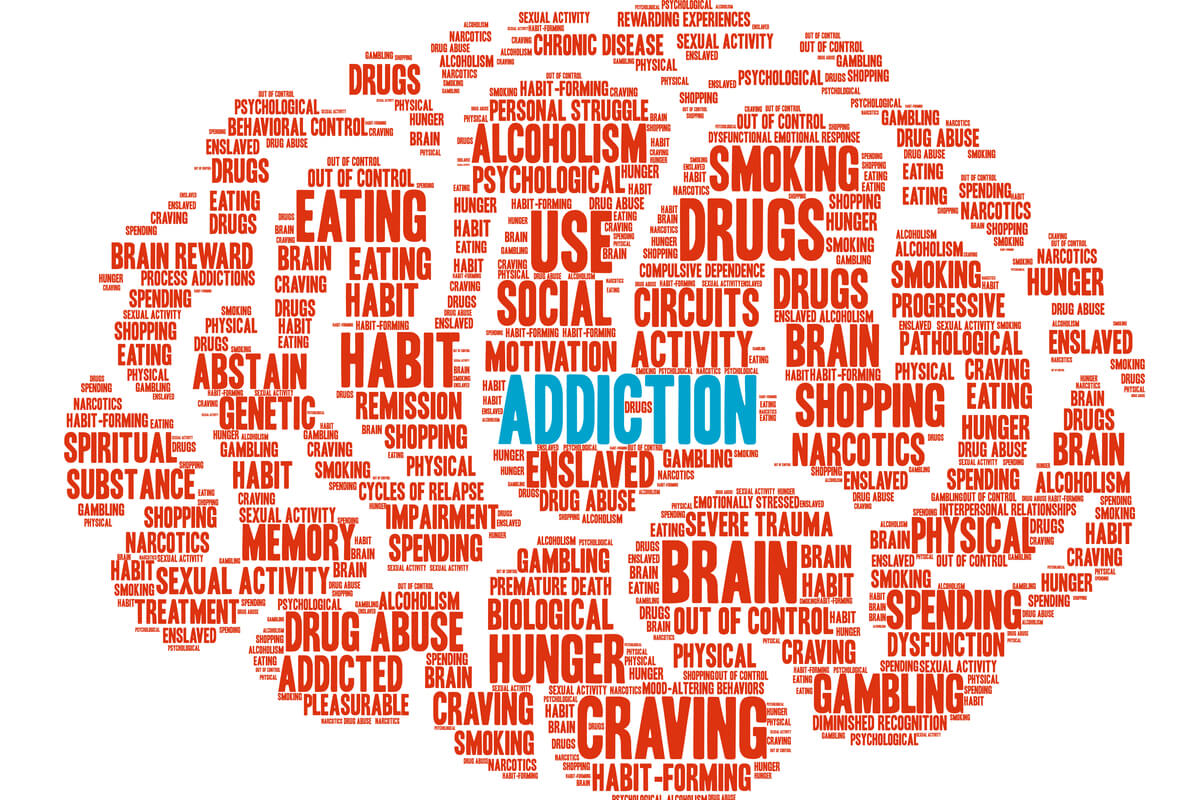Crushing and snorting Xanax (alprazolam) is common among people who misuse drugs. This method of misuse causes a more immediate high than swallowing Xanax, increases the risk of dependence, withdrawal and addiction, and causes many harmful effects, including sinusitis, nosebleeds and perforated nasal septum.
Why do people snort Xanax?
Quick Answer
People may crush and snort Xanax in order to experience a more rapid onset of effects and a more intense high.
What Happens When You Crush & Snort Xanax?
Crushing and snorting Xanax can release an entire dose’s power in seconds. Compared to taking Xanax orally, snorting it induces a more intense high with a more rapid onset of effects.
Some people misuse benzodiazepines alone. Others combine them with opioids for a stronger high.
While any type of Xanax misuse is dangerous, snorting the drug is especially hazardous. People who snort alprazolam start to feel the effects, on average, in two minutes (compared to 49 minutes for an oral dose).[1]
The effects wear off quickly when snorted too. Most people have peak experiences with snorted Xanax in 52 minutes (compared to 120 minutes after an oral dose).[1]
This immediate and short-lived rush of euphoria and pleasure can lead to a compulsive pattern of misuse as many people may repeat Xanax misuse once the effects wear off.
Comparing the Effects of Xanax Misuse
| Swallowing | Snorting | Smoking | Chewing | Shooting |
| Slow onset can lead to overdose. Some people take more pills before the first is working. | Rapid highs and quick sobriety damage brain cells and can lead to repeated misuse. | Inhaling pill coatings can damage the lungs, leading to chronic cough. | Rapid highs can cause intense sedation, dizziness and potential for sexual assault. | Injecting pill coatings can lead to blocked blood vessels and abscesses. |
How Else is Xanax Misused?
Most people who misuse Xanax swallow pills that friends and family members give them.[2] But some people get creative with their pills and take them in ways doctors never intended.
People who abuse Xanax may apply the following methods:
- Smoking: Crushed pills can be sprinkled on tobacco. Powder can also be mixed with water and heated, allowing users to inhale the vapor.
- Chewing: People who use this method crush pills with their teeth and swallow the powder.
- Injecting: Crushed powder mixed with water can create an injectable solution.
Xanax is one of the most misused benzodiazepines. In studies, people rank Xanax more likable than other drugs like Valium.[3] But some people will use any drug in this class that they can get from a dealer. They may switch from Xanax to Ativan to Klonopin and back again.
Dangers Associated With Snorting Xanax
Snorting Xanax means triggering a fast response. You’ll feel inebriated faster than you will if you take the dose orally.
It’s not smart to do this even once. But it’s even more dangerous to use Xanax repeatedly. Long-term use is associated with dependence.
These other side effects are common in people who snort Xanax:
Short-Term Side Effects
Benzodiazepines like Xanax are powerful, and they can change how you think and feel. Your body can change too. These side effects are common in people who snort Xanax:[5]
- Drowsiness
- Lightheadedness
- Sedation
- Nosebleeds
- Runny nose
Misusing Xanax by snorting it can also increase the risk of overdose. Although the chance of overdosing on Xanax alone is relatively low, many people mix Xanax with other drugs like opioids, which greatly increases the risk of a fatal overdose.
What Are the Symptoms of a Xanax Overdose?
Quick Answer
A Xanax overdose is life-threatening.[4] Common symptoms include severe sedation, confusion , lack of coordination, and unconsciousness. Call 911 immediately if you think someone is overdosing.
Long-Term Side Effects
Doctors don’t prescribe Xanax for long periods. But people who misuse the drug may keep taking it longer than anyone recommends. These long-term effects are common in chronic Xanax snorters:[5]
- Physical dependence: People don’t feel physically or mentally healthy without the drug. They need more to get high than they originally did when they first started using Xanax.
- Addiction: People put Xanax at the center of their lives. They withdraw from anything that doesn’t involve Xanax.
- Withdrawal: When people quit abruptly, they develop serious symptoms, including seizures.
- Nasal damage: Some people develop holes in tissues separating one nostril from the other. Others develop chronic nosebleeds and a loss of sense of smell.
- Increased risk of overdose: Chronic Xanax snorting can lead to tolerance, which means higher doses are needed to get high. This can lead to a Xanax overdose.
Signs of a Xanax Overdose
Snorting Xanax can increase the risk of overdose, especially if someone mixes this drug with other depressants like alcohol or opioids. Signs of a Xanax overdose may include:[6],[7]
- Slurred speech
- Confusion
- Altered mental status
- Impaired movement and coordination
- Slowed or stopped breathing
- Slowed or stopped heartbeat
- Unresponsiveness
- Coma
Most benzodiazepine overdose fatalities involve opioids. In fact, between 2019 and 2020, nearly 93% of benzodiazepine overdose fatalities included an opioid too.[8]
Treatment Options for Xanax Misuse
Treatment can help you stop misusing Xanax and build a healthy life. Your treatment plan typically follows several steps.
Your doctor may use alternatives to Xanax to help you detox. Allowing you to achieve sobriety slowly (rather than quitting cold turkey) reduces your seizure risks.
When you’ve gone through withdrawal and are medically stable, your doctor can start therapy programs to help you build relapse skills. There are no long-term medications to help you stay sober (as there are for people with opioid use disorders). However, professional treatment in an inpatient or outpatient program—as well as ongoing therapy—can help you learn how to gain control of your Xanax misuse and avoid relapse.
Frequently Asked Questions
We’ve compiled some of the most frequently asked questions about crushing and snorting Xanax.
People crush and snort Xanax to get high. This method puts all the power of the pills into effect in seconds.
People who abuse Xanax are often sedated for no explainable reason. They may also shop for doctors to write prescriptions or visit dealers to buy drugs.
If you think someone is misusing drugs, ask them. Tell them the signs and symptoms you’ve seen. Explain why you’re worried. Offer to help them explore treatment options. Your kindness could be key to helping stop the cycle of drug misuse.

Reviewed By Peter Manza, PhD
Peter Manza, PhD received his BA in Psychology and Biology from the University of Rochester and his PhD in Integrative Neuroscience at Stony Brook University. He is currently working as a research scientist in Washington, DC. His research focuses on the role ... Read More
- Inhaled vs. Oral Alprazolam: Subjective, Behavioral and Cognitive Effects, and Modestly Increased Abuse Potential. Psychopharmacology. https://www.ncbi.nlm.nih.gov/pmc/articles/PMC4326558/. September 2014. Accessed May 2023.
- Benzodiazepine use and misuse among adults in the United States. Psychiatric Services. https://ps.psychiatryonline.org/doi/10.1176/appi.ps.201800321. 2000. Accessed May 2023.
- Preference for alprazolam as opposed to diazepam in benzodiazepine-dependent psychiatric inpatients. Pharmacopsychiatry. https://pubmed.ncbi.nlm.nih.gov/1971118/. 1990. Accessed May 2023.
- Xanax. U.S. Food and Drug Administration.. https://www.accessdata.fda.gov/drugsatfda_docs/label/2016/018276s052lbl.pdf. September 2016. Accessed June 2023.
- American Psychiatric Association. (2013). Diagnostic and statistical manual of mental disorders (5th ed.). https://doi.org/10.1176/appi.books.9780890425596
- Brett, J., Murnion, B. (2015). Management of benzodiazepine misuse and dependence. Australian Prescriber, 38(5), 152-155.
- National Institute on Drug Abuse. (2018, March 6). Prescription CNS depressants: Drugfacts.
- Centers for Disease Control and Prevention. (2021, August 26). Trends in nonfatal and fatal overdoses involving benzodiazepines-38 states and District of Columbia, 2019-2020.
Download Our Free Program Guide
Learn about our program, its effectiveness and what to expect
Related articles
Imagine what’s possible on the other side of opioid use disorder.
Our science-backed approach boasts 95% of patients reporting no withdrawal symptoms at 7 days. We can help you achieve easier days and a happier future.









